Coaching Quote of the Day 4th June 2014
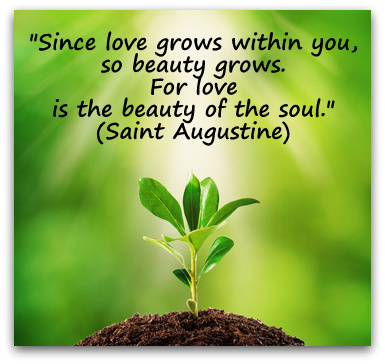
“Since love grows within you, so beauty grows. For love is the beauty of the soul.”
(Saint Augustine)

“Since love grows within you, so beauty grows. For love is the beauty of the soul.”
(Saint Augustine)
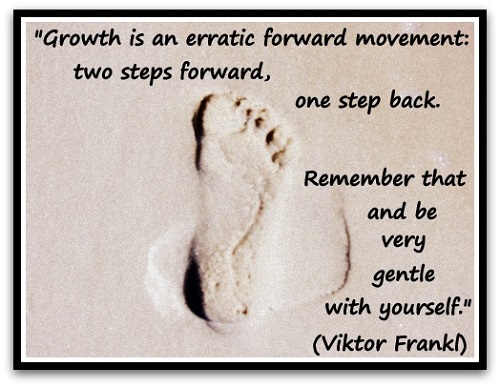
“Growth is an erratic forward movement: two steps forward, one step back. Remember that and be very gentle with yourself.”
(Viktor Frankl, psychiatrist)
In today’s guest post Beth Burgess shares her experience, knowledge and thoughts about:

by Beth Burgess
Coaches often talk of helping clients grow, without realising just how appropriate the gardening metaphor might be. People are like flowers: in order to bloom with their own individual beauty, they need a set of fundamental resources to be provided before they can flourish.
Clients may approach a coach as a mere seedling, or a saplings that need a bit of trellis to support their growth towards the sun. But for them to grow, they need the right conditions, and a coach must provide certain elements that nourish and sustain them.
Soil: Nothing can be achieved without providing the foundations of a successful coaching partnership, and this includes the coach being well-trained and practised and holding an attitude that serves the client and engenders trust, respect and success.
When coaching, I take on an attitude of Unconditional Positive Regard, which means the client has permission to feel anything they might feel, to say anything they wish to express, and the right to have their perspective acknowledged and held as valid. And nothing they can say or do will make me judge them or want to help them less. According to Humanistic Psychologist Carl Rogers, this practice helps to form the basis of a client’s self-actualisation.
Space: Like most flowers, which will not grow where there is too much competition, clients need a space devoted to them in order to get the best out of their coaching experience. A coach must ensure that a client feels held and supported, by providing them with their full attention. It is vital that coaches empty their mind of their own ‘stuff’ and stay present with the client in their own special space.
In practical terms, this extends to being punctual, maintaining confidentiality and respecting the client’s session time.
Light: As essential as light is to a flower, enlightenment around issues can be achieved by means of appropriately-applied coaching techniques. Many client epiphanies come from a well-placed remark, challenge or question.
Coaches should keep their skills updated so that they can help their clients to see the light when they are stuck in darkness, unable to see the way forward.
Water: After a client has had their lightbulb moment, translating this into progress means ‘watering’ them regularly with doses of encouragement. I like to cheerlead my clients and fortify their self-esteem at its roots by championing their strengths and acknowledging their progress.
Fertiliser: As coaches, we can ensure our clients’ “aha moments” are not wasted by supporting their initial ideas with a solid structure and breaking their goals down into realistic, achievable steps and targets. Although success can potentially be achieved without enriching the foundations in this way, growth is much quicker when the seeds of progress are given a boost.
Weeding: Very few clients approach us without a few weeds which trap their roots and hinder their growth. Obstacles, skills gaps, past issues and limiting beliefs are all things which need to be dug up or weeded out before our clients can be free to achieve success.
Coaches should check that none of their own ‘weeds’ limits the client, such as judgementalness, negative language, giving unwanted advice or not listening.
Tending: Checking at regular intervals that a client is on track to reach their goal, and has everything they need, will further support their healthy growth and chances of success.
Maintenance: Getting a client to acknowledge and use their strengths can help to ensure that no future weeds gather over their paths, or show them that they have enough resources to keep them at bay.
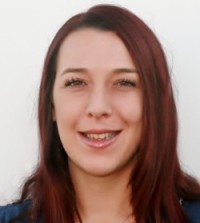 Beth Burgess is the founder of Smyls a solution-focused service which she set up to help people to overcome obstacles in their lives and create a fulfilling future.
Beth Burgess is the founder of Smyls a solution-focused service which she set up to help people to overcome obstacles in their lives and create a fulfilling future.
Using a mixture of Coaching, NLP, Hypnotherapy and Dialectical Behaviour Therapy, Beth specialises in working with addiction, anxiety disorders, eating disorders and other mental health problems.
In addition to her work with individuals, she also runs bespoke workshops for employee training and wellbeing, which cover topics such as Stress, Assertiveness, Self-Esteem and Working Successfully with Others.
Beth is the author of two books on addiction recovery; The Recovery Formula: An Addict’s Guide to Getting Clean & Sober Forever and The Happy Addict. She has also published a mini e-book, What is Self Esteem? How to Build your Self-Esteem and Feel Happy Now.
Beth lives in North London and coaches clients from all over the world. Her other projects include writing articles for The Huffington Post and speaking about her experience of addiction recovery.
For more about Beth, visit http://www.bethburgess.co.uk

“Change and growth take place when a person has risked himself and dares to become involved with experimenting with his own life.”
(Herbert Otto)
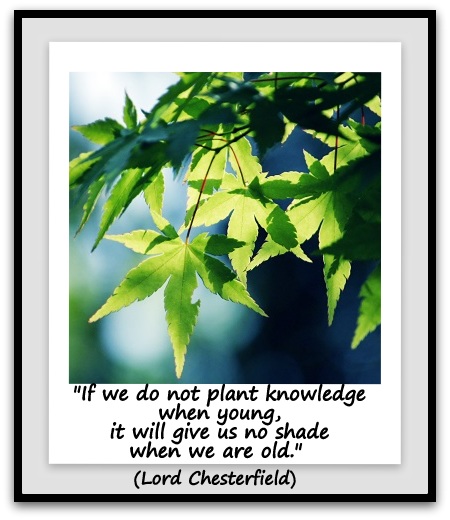
“If we do not plant knowledge when young, it will give us no shade when we are old.”
(Lord Chesterfield)
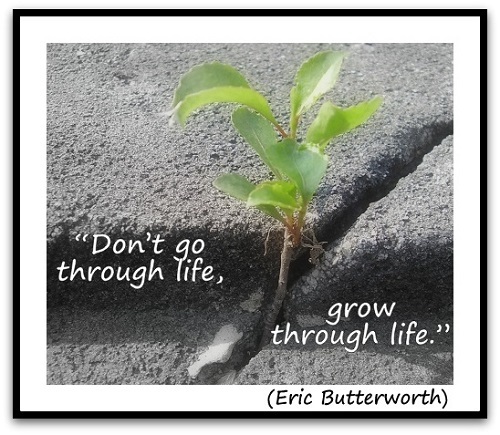
“Don’t go through life, grow through life.”
(Eric Butterworth)
As we approach the end of 2012 and the start of 2013 Cindy Hillsey focuses upon a specific type of resource in today’s guest post.
By Cindy Hillsey
Master Mind. Join a Master Mind group. Come Master Mind with us! After a while the term Master Mind becomes diluted and we are not sure what exactly it means.
The term Master Mind originates with Napoleon Hill and his business classic book, Think and Grow Rich. Hill defines a Master Mind as a “coordination of knowledge and effort, in a spirit of harmony, between two or more people, for the attainment of a definite purpose.” What Hill is saying is that a Master Mind is simply a group of two or more people who come together for a specific purpose. Since Think and Grow Rich was published in 1937, the Master Mind concept has evolved and is one of the many tools business owners use to keep themselves and their business on a forward path.
How can you benefit from finding, and joining, a Master Mind? Here are some ways:
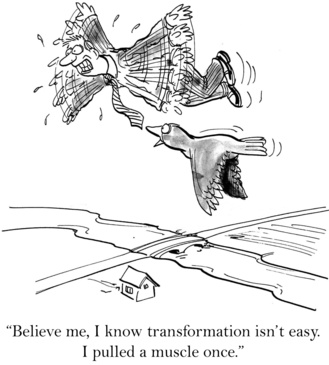




Could your business use a shot of collective brainstorming? Is it time for you to join a Master Mind? Only you know that. Keep in mind, there are many different types of Master Mind groups. Some are set up for a certain period of time, some are created for just idea generation only, for accountability only, or they can be designed around a specific industry. Some have a cost to join and others do not. The key is to find the one that feels good to you and that meets the criteria you are looking for. And, if you can’t find one that specifically meets your criteria, create your own!
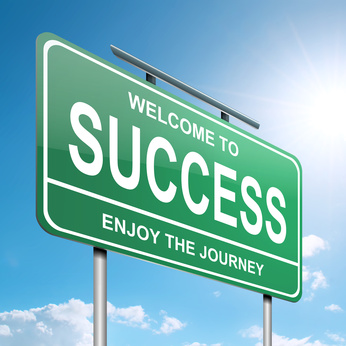
If you are considering joining a Master Mind, I’d like to let you know that I am opening up two groups that will begin in January. You will find all details at: http://virtualpartnering.com/mastermind/
Here’s to getting 2013 off to a great start!
Happy Holiday’s to you all!
Cindy Hillsey, CPC, ACC, is a Business Coach and the owner of Virtual Partnering, based in Albuquerque, New Mexico. Cindy has an extensive background in small business, both online and offline. By combining her experience, business skills, and her coaching skills, she is able to offer her clients a unique perspective to help them achieve their business goals. She works primarily with women who are Coaches and Virtual Assistants (VAs), who have lots of ideas and ambition and who want to own their own business. Cindy helps her clients see past where they are stuck by clearing the fog; see the possibilities, feel the excitement, discover the ‘how-to’s’, and acquire a confidence in themselves and their business. Cindy gives her clients hope! Her motto is: Think it! Create it! Market it! Helping women in business bridge the gap between their desires and their results.
Cindy holds a Bachelor of Science in Management from Davenport University. She is a certified coach through the International Coach Academy. Along with being a member of the International Coach Federation (ICF), she also holds the Associate Certified Coach designation through the ICF.
Cindy’s websites:
http://virtualpartnering.com
http://zenhillenterprises.com
Connect with Cindy:
Facebook: http://www.facebook.com/VirtualPartnering
Twitter: http://twitter.com/cindyhillsey
LinkedIn: http://www.linkedin.com/in/cindyhillsey